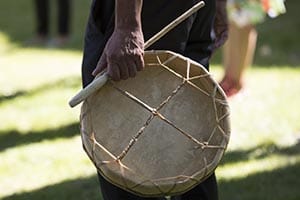Arts Menu
Languages
Choose a language course
Questions? Get in touch with the Languages coordinator
Note: If you believe that you have the prerequisite equivalent for one of our courses but it is not recognized by the automated registration system, please contact the Languages coordinator for a prerequisite waiver.
Languages provides skills training in the proficiency of First Nations languages, French, German, Japanese and Spanish.
As global economies become more complex, the need to communicate successfully in cultures other than our own and to reach out beyond English-speaking commonalities becomes crucial. Laying the groundwork for proficiency in another language now can also greatly enhance your future travel enjoyment.
Why take languages at TRU
Language classes at TRU are small, allowing maximum speaking and practice opportunities for rapid skill development. We make full use of a state-of-the-art language lab as well as using many on-line tools and apps to help learners quickly develop a new identity in the language of their choice.
Opportunities for students
Our students have access to many special projects and opportunities, including:
- International exchanges and study abroad
- Field schools
- The nation-wide Explore program
- Language clubs
- Service learning opportunities for international students as classroom and cultural facilitators
- Occasional offerings in other languages through MLAN 1110/1210
Careers for graduates
Graduates with proficiency in languages other than English can aspire to employment as:
- Overseas business representative
- NGO worker
- Translator
- Court interpreter
- International legal worker
- Teacher
- Industry protocol assistant





